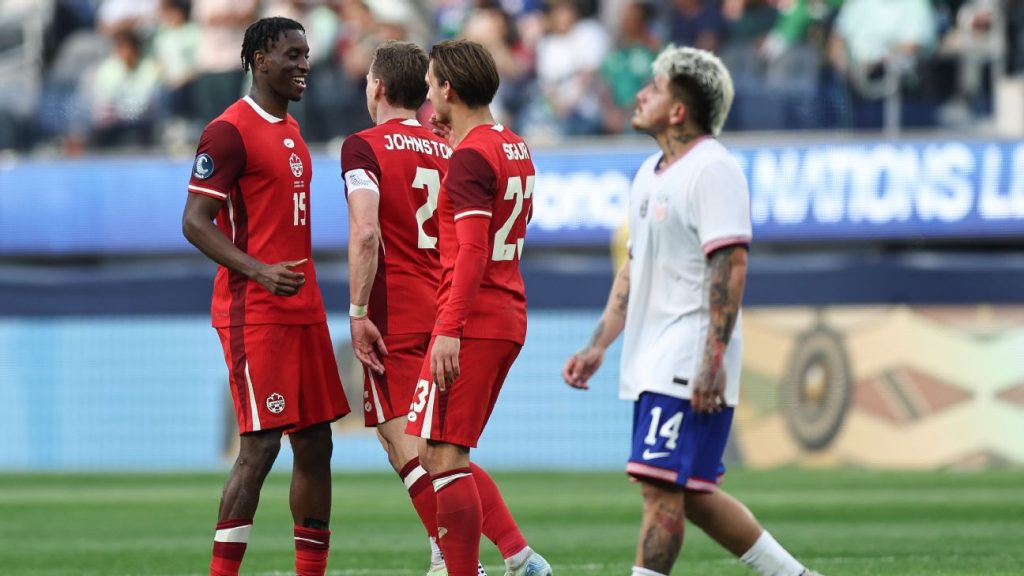
USA Soccer’s Identity Crisis: Where Is the Culture?
It’s March 23, 2025. The USA Men’s National Team has just lost to Canada, only days after falling to Panama—both matches played at home in California. The stadiums weren’t full, tickets were overpriced, and the team was uninspiring. Just over a year from co-hosting the 2026 World Cup, U.S. soccer fans are disgusted and disappointed.
Time will tell if Mauricio Pochettino was the right hire, but the bigger question isn’t about tactics or coaching—it’s about culture.
The USA national team has long been defined by its resilience, but this current generation seems to have lost that edge. In the past, under coaches like Bob Bradley, Bruce Arena, and Bora Milutinović, the team embraced its role as the underdog. The formula was simple: defend well, stay organized, rely on a world-class goalkeeper, and capitalize on limited chances. That identity led to moments like the late goal against Algeria in 2010, the shock win over Colombia in 1994, and even the run to the quarterfinals in 2002. Back then, nothing was taken for granted, and every opportunity was seized with urgency.
Talent Is There, But Where’s the Culture?
Now, the expectations have shifted. The USA is no longer seen as a scrappy underdog but rather as a team with established European-based players, many of whom play for elite clubs. Christian Pulisic has played in a Champions League final. Weston McKennie, Yunus Musah, and Tim Weah all feature at major clubs. Gio Reyna and Matt Turner are technically on European teams, though they struggle for consistent playing time. But does playing at big clubs automatically translate to having a winning culture? Or is it just an illusion of success?
In 2002, my college friend Pat Monahan, a multi-generational University of South Carolina football fan and high school basketball star, saw me reading a copy of FourFourTwo magazine. In it, there was a photo of Juan Sebastián Verón without a shirt, showing off his Che Guevara tattoo. Pat pointed at it and said, “That is what I want the face of US Soccer to be. Not Landon Donovan.” Ironically, Landon Donovan ended up bringing more passion, culture, and leadership to the USMNT than any of the current players. Donovan wasn’t just talented—he played with heart, grit, and an understanding of what it meant to wear the USA jersey. That’s exactly what’s missing from this generation.
A Team That Takes Everything for Granted
The US failed to qualify for the 2018 World Cup, a disaster that should have sparked a complete cultural reset. Instead, after a promising run in Qatar, the team once again fell short when it mattered most, losing to the Netherlands in the Round of 16. Now, with the 2026 World Cup on home soil, they’ve followed that disappointment with back-to-back losses to Canada and Panama—at home, in California, in front of half-empty stadiums. This team appears to take its position for granted, believing talent alone will be enough. But history has shown that talent without culture, without a true identity, leads nowhere.
The Problem: A Sport for the Privileged
The larger issue isn’t just the current squad—it’s the culture of soccer in the United States as a whole. Soccer in the U.S. has always been an upper-middle-class sport, often dominated by pay-to-play academies and suburban families. But soccer culture, the kind that produces real leaders and warriors on the pitch, isn’t born in gated communities or $5,000-a-year club teams. It’s forged in places where the game is played for passion, not privilege.
The majority of MLS fans are suburban moms and dads bringing their kids to games, while the most passionate soccer culture in the country is found in the lower leagues—USL, NISA, and the grassroots supporter groups that follow them. Maybe it’s time we start embracing that culture instead of trying to manufacture something artificial at the top.
So how does the USMNT find its identity? How do you create a culture? It’s not just about developing talent—that part is already happening. It’s about fostering leadership, embracing the fighting spirit that defined past generations, and building a team that truly represents American soccer fans, not just elite academy graduates.
Time Is Running Out For USA Squad
Pochettino can’t blame the system. The U.S. is producing elite players—many good enough to start in Europe. But a World Cup on home soil demands more than individual brilliance. It requires unity, resilience, and, most importantly, wins.
If Pulisic, Adams, and the next generation can rediscover the spirit of past American teams—if they can win when it matters—fans will rally behind them. The U.S. has the pieces. But until they prove they can put them together, they will remain a team full of potential, lacking the one thing they need most: a true identity.
Time is running short. The talent is there. The culture? That remains to be seen.



